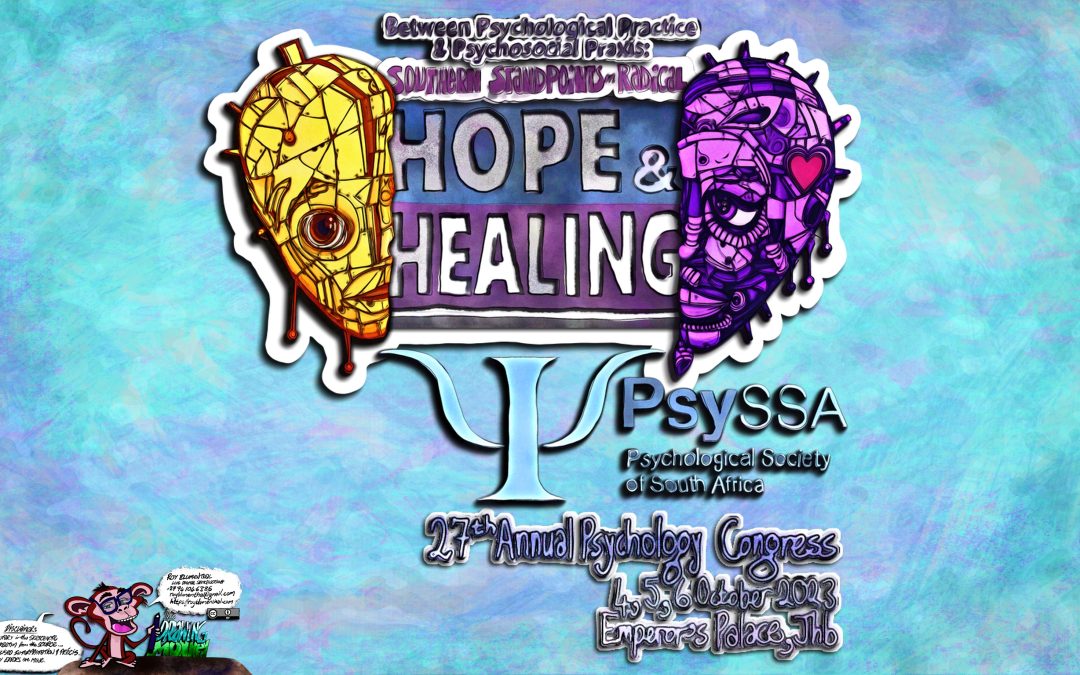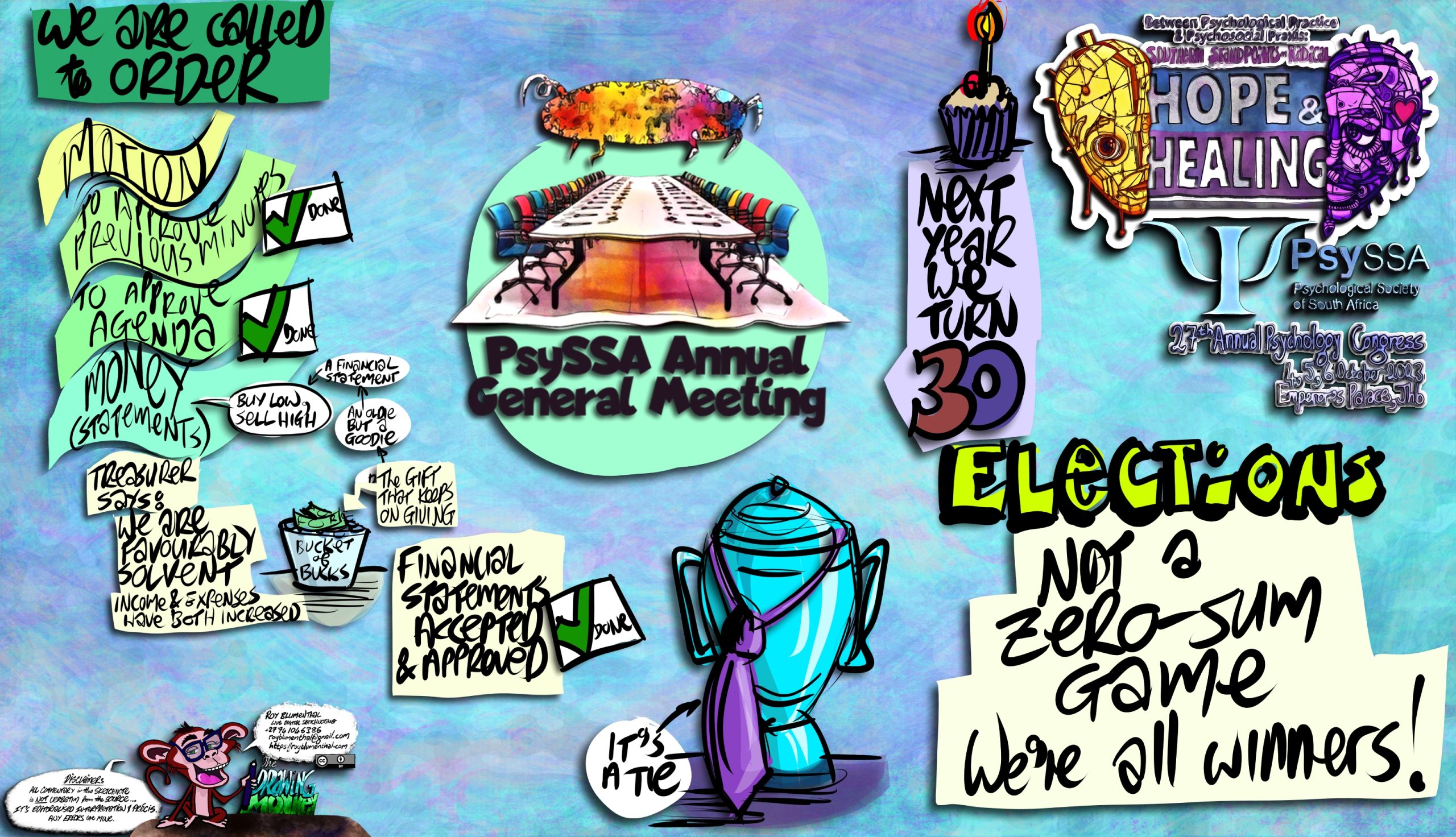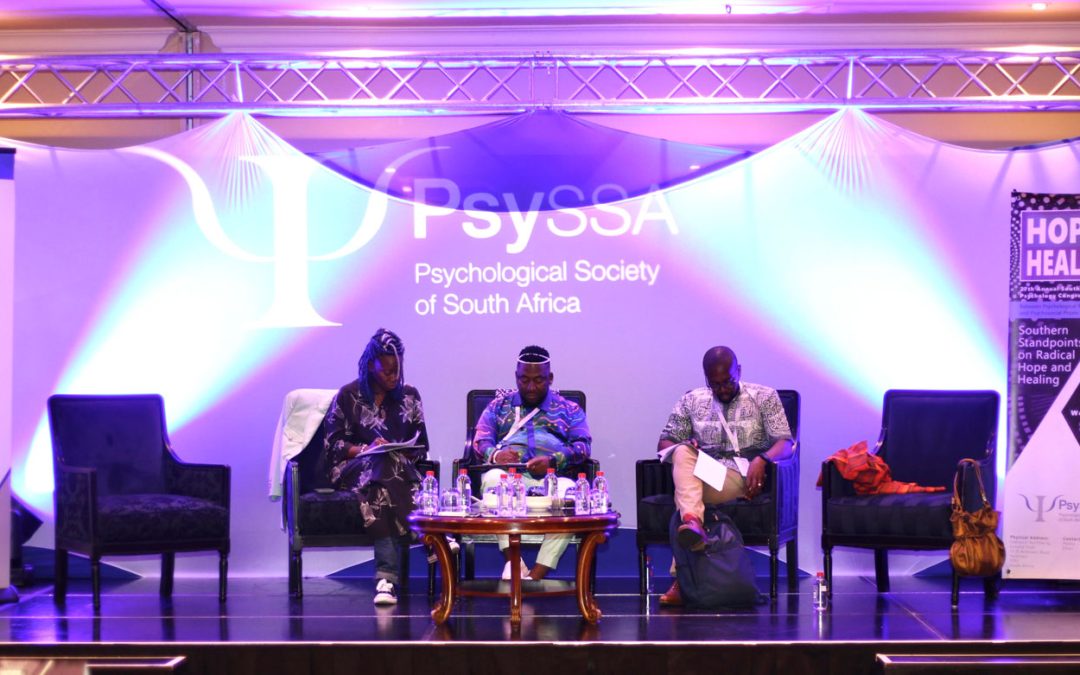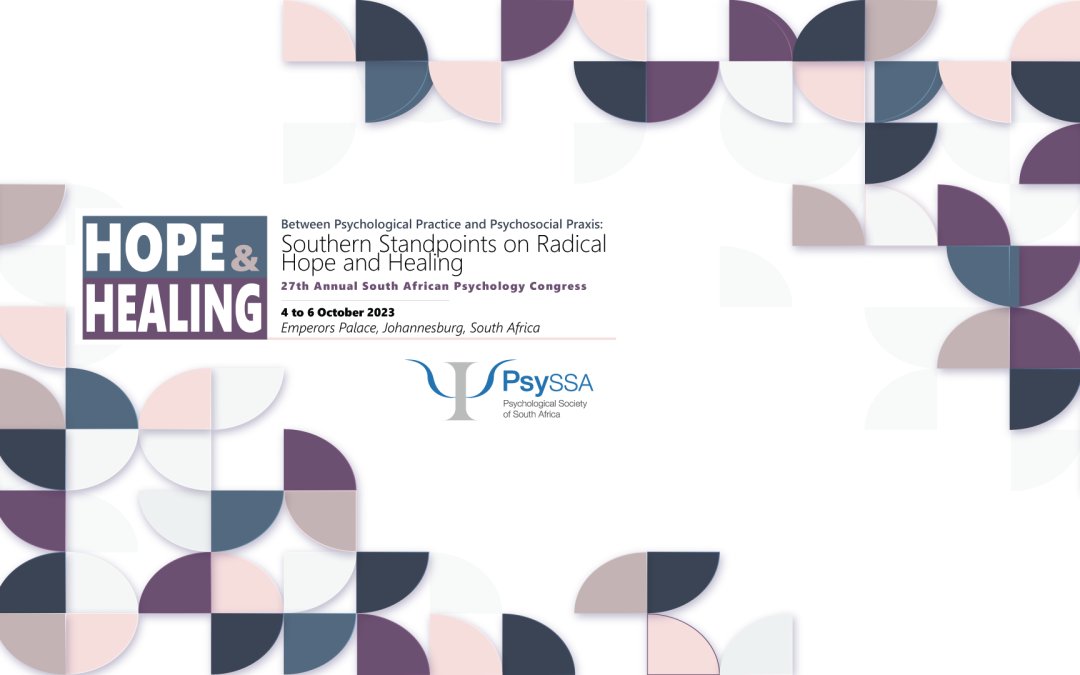
Therapies for Healing Justice: Redressing Systemic Oppression and Intergenerational Trauma
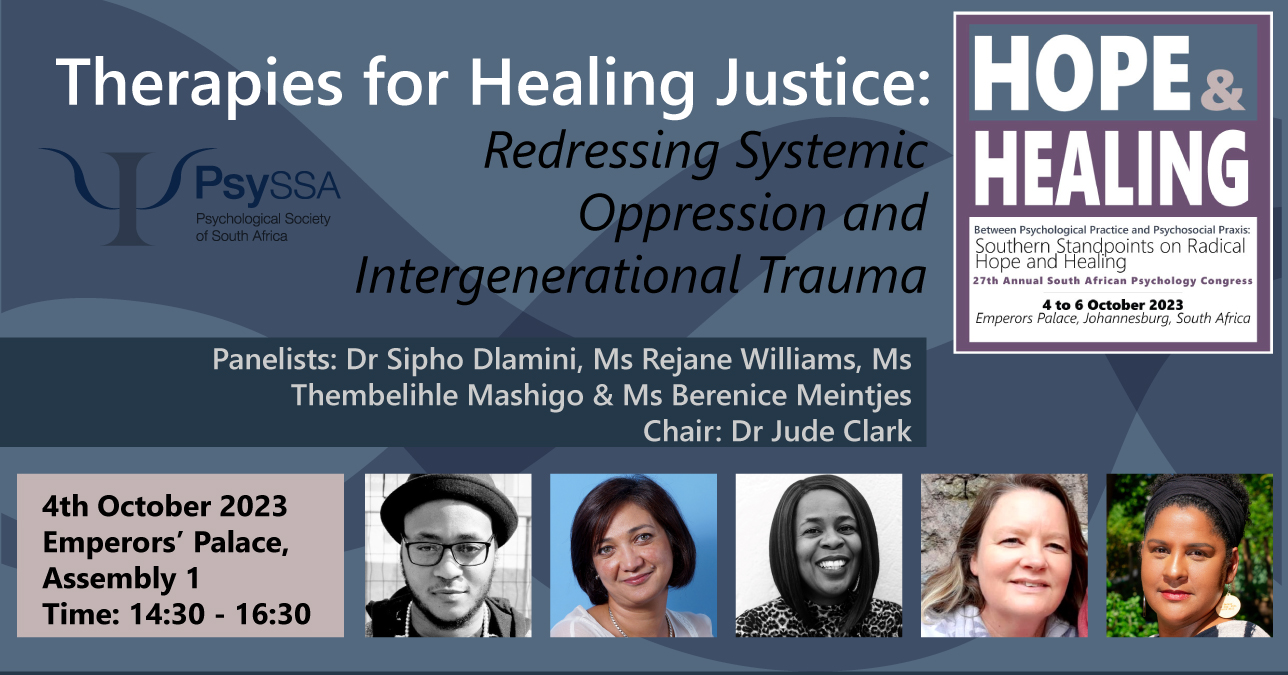
A diverse panel of practitioners – clinical, organisational, and counselling psychologists offered engaging presentations, all critiquing dominant constructions and discourses of therapeutic practice, but each providing a very different angle to exploring the implications of systemic oppression, historical and contemporary and the possibilities for collective healing. We questioned the extent to which a race-based trauma cycle might be ingrained into South African consciousness and asked what it is that needs to be healed, not only from the past, but in the current context of a neoliberal democracy. We were encouraged to examine language and relations of power by imagining psychology in our own African languages outside of the confines of English and questioning what harm we cause when we expect our clients to ‘meet us where we are’. We heard of the generative possibilities at the interface of psychoanalytic praxis and African spirituality, where object relations include ancestral objects in particular ways and where Umoya (spirit) can be a diagnostic tool. Frameworks of working with trauma were reframed drawing on more contextually relevant ways of becoming more political in our psychological and psychosocial work within communities. There was rich storytelling in all presentations and some interesting questions from delegates.


